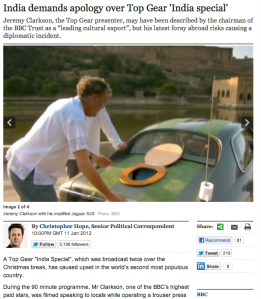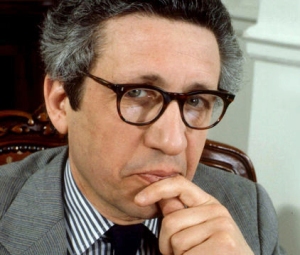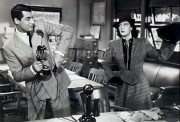Archive
The Telegraph’s poll: no need to add impudence to impertinence
Today the Telegraph has an interview with the “country’s top tax man”, Mr Dave Hartnett, urging householders not to pay tradesmen cash in hand, apparently because it only encourages them to avoid paying VAT.
““Tax provides the funding to run the country: hospitals, schools and everything else,” he says. “Every time someone pays cash in order not to pay VAT, the nation gets diddled.”
Quite apart from the fact that Mr “Dave” appears to confuse the concept of “the nation” with “the government” – if a tradesman diddles the Government out of VAT, that’s money he/she can then spend elsewhere in the nation – there’s a distasteful impertinence to the unspoken suggestion that we should all act as HMRC’s informal (and unpaid) enforcer-interns.
Adding impudence to the impertinence of this special pleading, the Telegraph website also has a poll, “Is it OK to pay cash in hand to tradesmen?”, which, if you try to submit your vote at a time when telegraph.co.uk is off having a tea-break, a quick snifter, a nice lie-down or whatever (which seems to be most of the time), comes up with this:
Really, I don’t know what the mysterious owners of the Telegraph, the mysterious Barclay twins – Gilbert and George? Gilbert and Sullivan? Eric and Ernie? – get up to all day on their mysterious island hideaway of Brecqhou, but surely they have enough time to take a break from stroking their mysterious fluffy white cats to check up on what a mockery Tony Gallagher is making of a once fine newspaper.
So, farewell then, Johann Harvey…I mean HARI
I guess I’m kinda sad that Johann “Harvey” Hari will not be returning to “The Independent” (dread term, as its former, most well-respected columnist Wallace Arnold would say). I was looking forward, perhaps over-gleefully, to seeing exactly what the Great Plagiarist would come up with that would in any way atone for his previous frauds to his loyal followers. Equally, I wanted to see how the Independent (“It once was. Are you still?”) would once again weasel its way around the fact they let him get away with these frauds for so long: indeed, would promote him way above his journalistic capability – which many seasoned journalists had called into question before the balloon finally went up – his intellectual honesty or his educational ability (Tim Worstall was calling him out on his inept economic analysis long before his plagiarism came to light).
But, having returned from his New York journalism re-education camp…sorry, I mean retraining course…(hang on, he never had journalism training in the first place, so how does that work?) he has decided to cop out. Fleet Street Blues puts it kindly: “Fair play to him for falling on his sword…” Well, far enough, except that it was a sword he fashioned himself from the ploughshare used by more honest, less ambitious and glory-seeking journalists than he.
Is there a lesson to be learnt from the Johann Hari affair? Yes, there is, and it is, in the portentous tones of Laurence Rees, it’s “A Warning From History”. The rise of Hari roughly coincides with that of Tony Blair and New Labour, and it’s difficult not to recall Peter Oborne’s verdict on the relationship between truth vs falsehood during that regime, in The Rise of Political Lying:
It is not unreasonable to speculate that the prime minister has a strong tendency to fall victim to a common conceptual muddle: the failure to understand the distinction between truth versus falsehood and truth versus error. Tony Blair, and many colleagues, consistently seem to feel that they are lucky enough to have been granted a privileged access to the moral truth. This state of grace produces two marvellous consequences. It means that whatever New Labour ministers say or write, however misleading or inaccurate, is in a larger sense true. Likewise whatever their opponents say or write, whether or not strictly speaking accurate, is in the most profound sense false.
Hari’s apologists (Polly Dutt-Pauker, Caitlin Moran etc) have all tended to forgive the Blessed Hari’s venial sins – misrepresentation, plagiarism, making up direct quotes – because he represented a Cardinal virtue: a “moral” truth, though not one supported by anything so mundane as facts, reality or common sense. It’s as though he and they have taken the example of Evelyn Waugh’s Shumble, Whelper, Pigge and Corker in Scoop and learnt exactly the wrong lesson. But then right-wing satire is always a bit too subtle for the lefties’ more clod-hopping tastes.
So Hari is off to write a book
“on a subject I believe is important and requires urgent action. To be done properly it needs international travel and …in depth focus…”
Hmmm. “The Ethics of Journalism – An International Study”, perhaps? The Plagiarist’s Progress, perchance, following our hero from the City of Destruction (a rather ungenerous way to describe the Independent, but I wouldn’t know; I’ve never worked there), up Hill Lucre, to the House Beautiful and down into the Slough of Despond and the Valley of Humiliation? A novel called…oooh, I don’t know, something along the lines of “The Fabulist” perhaps, about a reporter on a respected national publication who throws it all away by making stuff up? Oh, that’s already been done (and had the Hollywood treatment, too).
Maybe it’s a biography of Polly Dutt-Pauker he’s thinking of doing. Now that would require in depth focus – and international travel, of course (and Tuscany is so beautiful this time of the year, too).
Good luck, Johann, whatever you do. Just stay away from journalism, all right?
And now you’re out of the way, you snivelling little creep, it’s time to go after bigger buggers. Time to turn up the screws on Simon Kelner. Stay tuned, fact fans.
Jeremy Clarkson and the freedom of an unfair press
So, Jeremy Clarkson and his merry pranksters from Top Gear are in the soup again, this time over the programme’s”India Special” broadcast twice over the Christmas break.
According to the Daily Telegraph, the Indian High Commission is demanding an apology from the BBC over the programme, claiming Top Gear’s producer Chris Hale misled it over the eventual nature of the programme when seeking help in its making.
“The programme was replete with cheap jibes, tasteless humour and lacked cultural sensitivity. This is not clearly what we expect of the BBC. I write this to convey our deep disappointment over the documentary for its content and the tone of the presentation,” the letter from some mysteriously unnamed (at least unnamed in the Telegraph’s report) “diplomat” rather pompously puts it.
On the one hand, this report can be seen as just another case of the on-going BBC-bashing by the press, of which Clarkson et al are currently the main whipping boys. Now I have nothing against BBC-bashing: it’s an entirely honourable profession. But I do think it odd that Clarkson seems to be the main target, since his programme, aimed at petrol-heads of both sexes who enjoy a dash of schoolboyish, lavatorial humour obviously strikes a chord which a large section of viewing public, both here and abroad (it’s one of the BBC’s biggest exports). I’d have thought there were other, more legitimate targets in the BBC’s often skewed output that were worthy of attention. Quite why the Telegraph, Mail, Independent, Express etc so relentlessly target an ultimately lightweight programme which tickles the funny bone of such a large proportion of their potential readership baffles me.
Perhaps the fact that he also writes for the Sunday Times and the Sun makes Clarkson such an irresistible target, combining as he does the chance of not only a spot of BBC-bashing but Murdoch-bashing as well.
The other point worth noting that if the Indian diplomats really thought that the resulting Top Gear programme would be a po-faced travelogue extolling the beauty of the Indian scenery, friendliness of its people and the stupendous fabulousness of its automative industry, they betray a naivety and an ignorance that makes you wonder how they ever managed to pass the Indian civil service exams to become diplomats in the first place. Surely they must have seen the programme before? And surely that would have given them some clue as to what the likely result would be?
That naivety and ignorance is betrayed by the comments of one – again, curiously unnamed – diplomat to the Telegraph:
“We understand the free press – they are welcome to explain and to challenge as long as it is fair and above the belt. Can this pass as acceptable journalism?”
No sir/madam: you obviously do not understand the free press if that is what you believe. In countries where there is freedom of the press, media outlets may posit themselves as being “fair and above the belt” for whatever reason: a sense of smug superiority and higher purpose, perhaps, or simply because they believe that such a position gives them a commercial advantage over more blatently biased competitors.
But there is nothing explicit or implicit in the concept of “a free press” that makes being “fair and above the belt” mandatory.
The Times’ columnist Bernard Levin put it best in 1980, responding to the Master of the Rolls Lord Denning’s comment that “a free press must be a responsible press”.
Summoning his most orotund, magisterial manner, the man who often put the thunder into “The Thunderer” proclaimed:
It cannot be emphasised too strongly nor indeed put too extravagantly, that the press has no duty to be responsible at all, and it will be an ill day for freedom if it should ever acquire one. The press is not the Fourth Estate; it is not part of the constitutional structure of the country; it is not, and must never be, governed by any externally imposed rules other than the law of the land.
Tim Worstall makes a similar point:
…freedom of the press does indeed allow you to use fairness and above the beltness as a positioning exercise, sure, but it doesn’t in fact require you to do so. Which is rather the point of that “free” bit in there, d’ye see?
Indeed. We may humour ourselves that the best press is one that is fair, above the belt, temperate, reasonable, balanced, responsible etc – and of course, the media outlet we currently work for is all of these things, while its competitors are hopelessly skewed by hidden agenda and almost criminal bias – but they are not mandatory attributes of a free press.
Levin goes even further to question whether they are even desirable attributes:
…we [the press and media] are, and must remain, vagabonds and outlaws, for only by so remaining shall we be able to keep the faith by which we live, which is the pursuit of knowledge that others would like unpursued, and the making of comment that others would prefer unmade.
Stanley Baldwin’s famous dictum about the press barons – “power without responsibility, the prerogative of the harlot” – is a good soundbite on the desirable attributes of power, but has nothing to do with the desirable nature of a free press.
Getting ready for the return of Hari
Well, 2012 is upon us for better or worse. Amidst the many pundit predictions of what will come upon us in this coming year, I noticed one curious omission: none dared foresee what should befall us with the imminent rearrival of Johann Hari in our midst.
After all, Independent editor Chris Blackhurst has publicly stated that Hari will make a return this year, after the secret “investigation’ by Andreas Whittam Smith (whom many serious commentators believe actually moonlights – with the aid of a silly beard , a joke-shop mitre and a crook he may well have nicked from a children’s nativity scene- as the Archbishop of Canterbury. Certainly, the way Her Majesty can scarcely control her giggles whenever that bearded loon opens his mouth suggests she is in on the joke. I rest my case).
Might I humbly suggest that Hari be given a gentle reintroduction into the rough and tumble of Fleet Street, by perhaps being given a mentor, as advocated in the Confederation of Business Industry handbook of Following EU Directives/slavishdevotion/edict01235.87-98/englischepigs-humbling-of.
And might I even more humbly suggest – this being totally against the whole Fleet Street ethos for 200 years or so – that this mentor come from a newspaper other than The Independent? It’s just that, surely, on his first awkward steps on the rocky rehabilitation road since his re-education stint in the Guantanamo of the liberal US media, Hari might welcome the guiding hand of a fellow spirit, one who supported him through his bad times, who felt his pain, albeit at a distance, and knows his tactics better than he does.
Here, in my one and only prediction for 2012, is how I reckon that tricky first Hari interview with a Celebrity Interviewee might go:
Polly: Well, I’m awfully glad to meet you, Mr Celebrity Interviewee. I am Polly Dutt-Pauker (for it is she). Here, let me give you one of my cards…
Celeb Interviewee: Well, thank you Miss Dutt-Pauker…
Polly: Mssss! Have one of my cards…
Celebrity Interviewee: Sorry, Ms Dutt-Pauker, but you see I have an important interview with a chap by the the name of Hari and I don’t have time…
Polly: (Gaily, in a politically-pointed way) Oh, hah-hah-hah. I see, in your mean-spirited conservative-voting fashion you do not quite understand my educative progressivism. Allow me to introduce you to my good friend Hari… (indicates space to her left)
Celeb Interviewee: (goggles) Well, I’d be very pleased to meet Mr Hari…
Polly: And you know he’s very pleased to meet you. And more than pleased that you meet him.
Celeb Interviewee: Well, if I could see him…
Polly: See him? Well, Mr Celebrity Interviewee, if you had availed yourself of the very fine spectacles available from our famed National Health Service, whose hospital-contracted infection rate is second to none in the western world, you could quite clearly see that my good friend Hari is right here beside me.
Celeb Interviewee: (goggles) But I can’t see him…
Polly: Hah-hah-hah. You right-wing, proletariat-crushing bankers are such a tease. Of course you can’t see him, he’s a future we must all bring about, not matter the cost. I know: I mentor him on economics, as I do on so many others. I hope you are are broad-minded enough to recognise and accept that Hari is a Pooka.
Celeb Interviewee: A…Pooka?
Polly: Yes. That’s Pooka with a P, not an F. Say hello, Hari.
Celeb Interviewee: Well, I can’t hear him, either…
Polly: Have no fear! I assure you that not only is Hari a dear friend, but he knows everything you’re about to say, even before you say it! It’s amazing how he can divine your thoughts even before you’ve thought them. Well, goodbye – I must leave you in Hari’s capable hands! I’m off to Tuscany, where I hear the au pairs are blooming lovelier – and cheaper – this time of year! Did I give you one of my cards?
Stop this cruel display of elderly mental break down!
Many of us know from first-hand the gradual physical and mental break down that occurs with the advancement of years.
It has probably occurred among your own loved ones – the grandmother who remembers clearly what happened thirty years ago, but can’t recall the cup of tea you just made for her five minutes ago; the affable, twinkly-eyed , grey-haired former local Labour MP uncle who still maintains Socialism is the only way forward, as though 1989 never happened; the slightly dotty auntie who had a neighbour’s spaniel put down twenty years ago because of its barking, and can still regale you with every detail of what a struggle that was. Every family has them.
Still, that is a family matter. Such matters are tragi-comic. With the outward manifestations you would often be unhuman not to laugh at, in the same way you couldn’t help laughing at a man slipping on a banana skin (which I have actually seen, and laughed at).
But natural sympathy makes it equally inhuman not to feel sad that someone we had known as a full, well-rounded human had somehow been diminished, the wisdom of their experience slowly and cruelly being chipped away by the decrepitude of advancing age.
Well, it’s one thing to experience this within the personal sphere of a family. It is quite another to have it broadcast for all to see. Which is what we are now seeing.
Think: a beloved grandparent who taught the value of thrift, value for money and living within your means is publicly shown running off to a supermarket where they spend up large on over-priced goods whose benefits are purely in the minds, and – ultimately – pockets, of a taxpayer-subsidised company.
Think: a beloved grandparent who you thought was an intelligent, thinking and believing member of one of the recognised forms of belief – Christianity, Judaism, Islam, Atheisim etc – is shown to be really none of these, but a member of a weird cult of Scientism, who worship forms of computer models, believing these replace the human experiences of seeing, hearing, smelling and feeling.
Think: a grandparent who once dandled you on his knee now broadcasts throughout the world that, really, you should not exist. Neither, really, should any of your siblings, mates or really any one else other than those whom your grandparent and like-minded friends decree. Oh, and you should not have any off-spring either.
Old-age decrepitude is, as I say, both a sad and funny thing. But it is a family one. Which is why I make the following point:
BBC: Please stop making such cruel fun of David Attenborough by putting him on TV so much. It’s a family matter.





